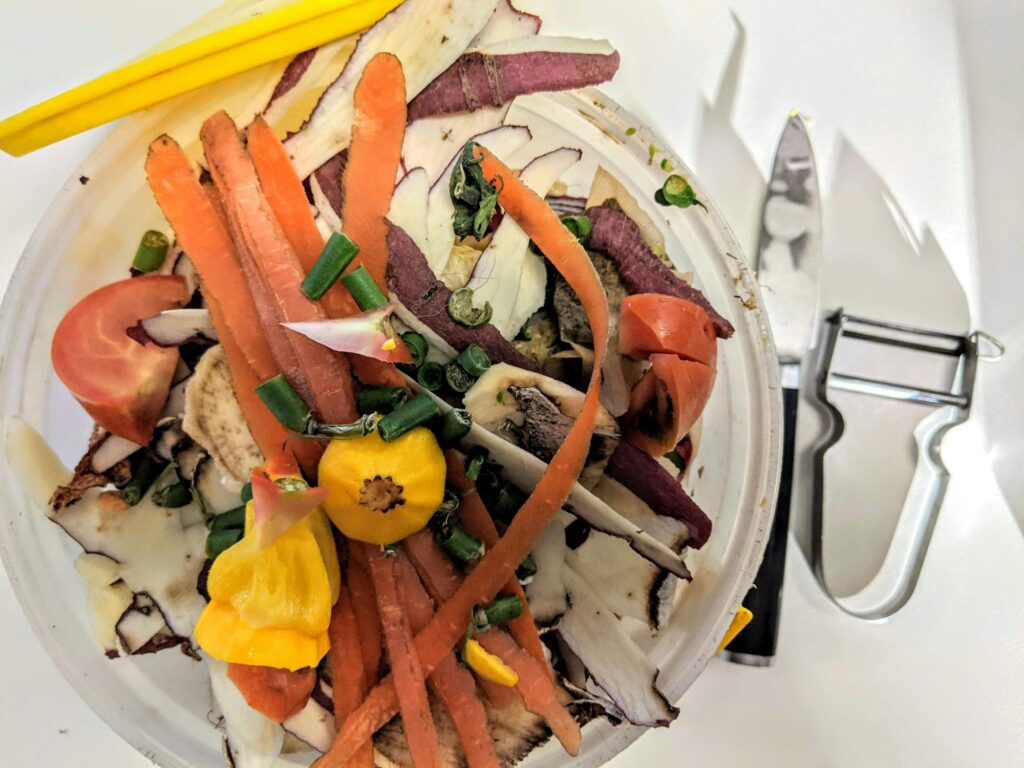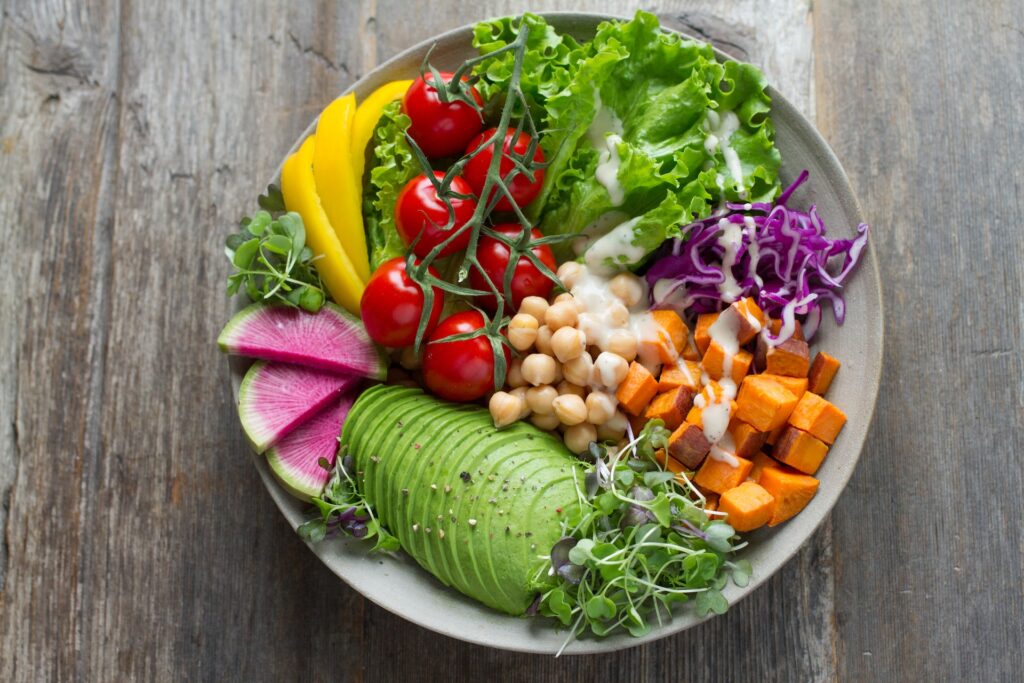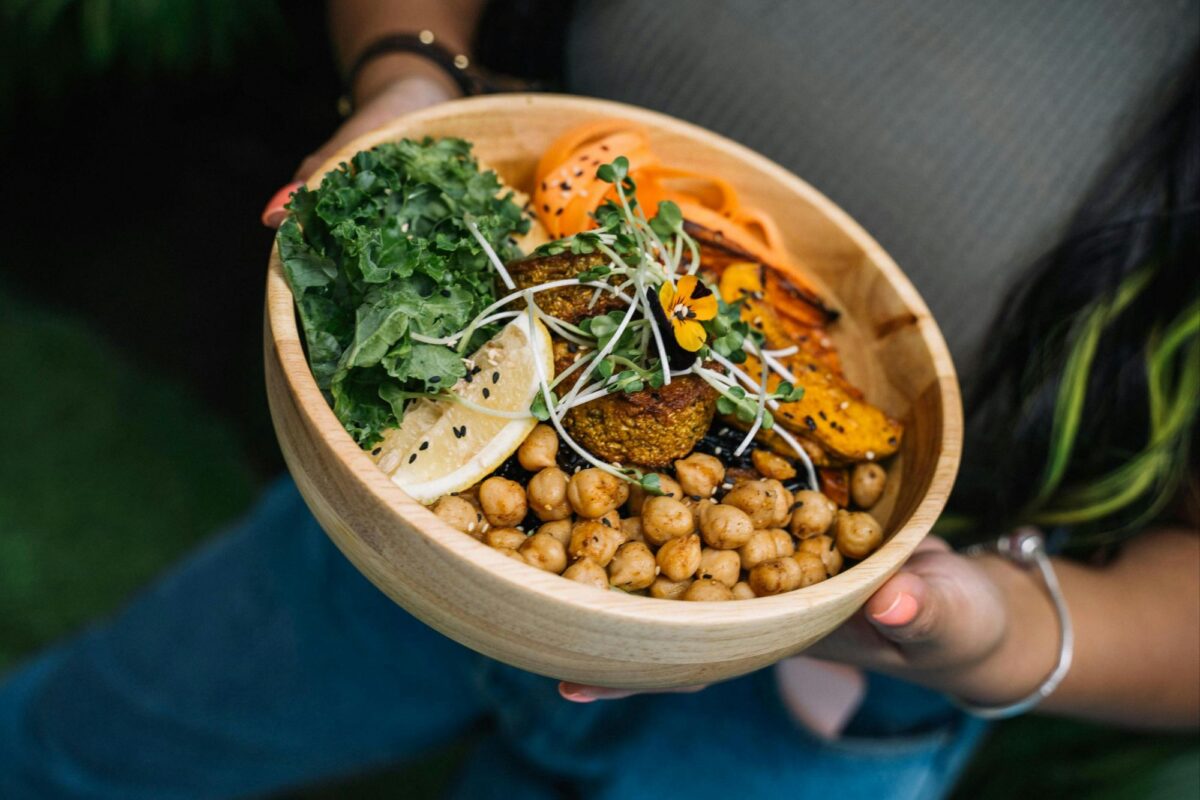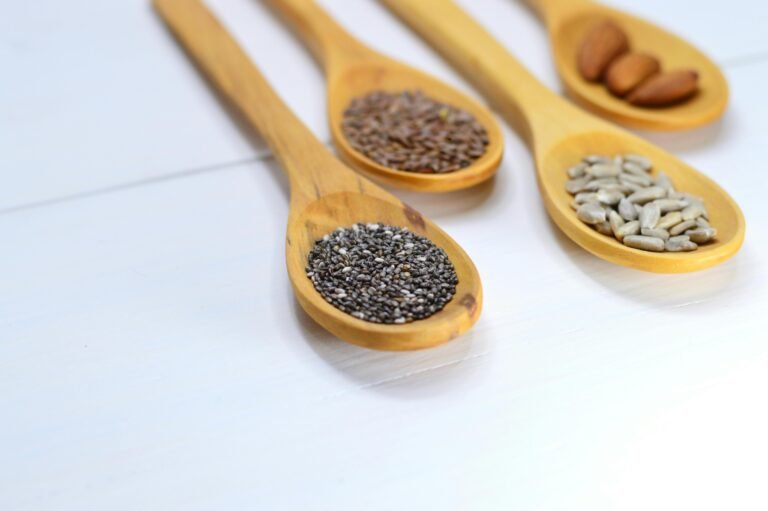A sustainable diet is a dietary pattern that promotes all dimensions of one’s health and wellbeing, has a low environmental impact, is accessible, affordable, safe, and equitable.
“Aiming for a more ‘plant-based’ style of eating does not mean that we must cut out animal source foods completely from our diet” – Helena Gibson-Moore, Nutrition Scientist, British Nutrition Foundation.
Sustainable eating involves making conscious food choices that minimize negative impacts on the planet while ensuring nutritional needs are met.
How to eat a sustainable diet?

One of the fundamental guiding principles for sustainable eating is health and nutrition.
Unhealthy diets, such as foods loaded with sugar, salt, and trans fats, have caused many health issues worldwide, among which are obesity and malnutrition.
Read more to know what food has to do with climate change
Designing new diets with a balance of nutrients and health-promoting elements without hurting the environment is a powerful tool to achieve global sustainability and nutrition goals.
Here are some easy ways to adopt a sustainable diet.
Minimizing processed foods

Processing generally impacts the nutritional value of food negatively and also leads to a larger environmental footprint.
We see an increased consumption of highly processed food over the years due to changing lifestyles, coupled with intensive advertising and marketing.
Such foods are generally high in salt, additives, saturated fat, trans fats, and preservatives, which are linked to various health problems such as heart disease and obesity.
Read more: trans fats in food and how to avoid them
Reducing the consumption of highly processed food helps us contribute to a sustainable and healthy food system.
Consuming minimally processed food and adequate quantities from diverse food groups helps in improving diet and attaining sustainability goals.
Reducing food waste

Preventing edible food from ending up in the trash is a powerful step we can take toward enhancing food security, promoting a sustainable diet, and reducing malnutrition and global hunger.
Food waste generates up to 10% of global greenhouse gas emissions.
There are many effective ways to reduce food waste, like buying only what you’ll eat, storing leftovers safely and using them before they spoil, and composting the waste that is not edible.
To learn more about reducing and managing food waste, here’s my recent article: 7 ways to reduce food waste
Reducing, repurposing, and properly managing food waste saves money, lowers one’s environmental footprint, and conserves natural resources.
Reduced consumption of animal products

Animal agriculture is a significant source of greenhouse gases, including methane and nitrous oxide.
By making conscious choices to reduce the consumption of animal products (red meat), individuals can contribute to a sustainable diet and improve their health and well-being.
This does not mean that you can’t consume any meat; just keep it to a few servings each week and fill the rest of your plate with plant-based foods, choosing products from farms with sustainable practices, such as pasture-raised or organic.
Consuming fewer meals derived from animals improves the environment by conserving valuable resources and lowering greenhouse gases linked to global warming.
Eat more variety

Building colorful plates with a variety of whole foods can lead to a more nutritious, flavorful, and sustainable diet.
By combining foods of different colors, you ensure a broader range of micronutrients, fiber, and phytonutrients, all essential for balanced health.
Whole foods provide depth, contrast, and complexity of taste naturally.
Read more: 7 benefits of eating fruit every day
Choosing whole, plant-based ingredients and minimizing highly processed foods benefits both your health and the planet.
This intuitive way of eating isn’t about restriction. It helps you explore new flavors, enjoy beautiful meals, and nourish both your body and the planet.
A sustainable diet is a way to ensure you’re nourishing your body with a broad spectrum of nutrients, enjoying more flavorful meals, and making choices that are kinder to the planet.





I love to eat more greens. I’m an 85% vegetarian. Hehehe. Sustainability diet sounds good. Thank you for sharing.
Thank you for sharing your view on this post.
Eating more greens is beneficial to our health and the planet too.
I definitely need to give my diet an overhaul, and this post has given me some really good ideas—thanks!
I’m glad to know, you got good ideas on diet through this post.
This is great advice! I have been a vegetarian since I was in high school, and I regularly cook dinner every night. I also often eat any leftovers the next day for lunch, so I can avoid throwing perfectly fine food away.
Thank you!
Using leftovers is a great way to avoid wasting food.